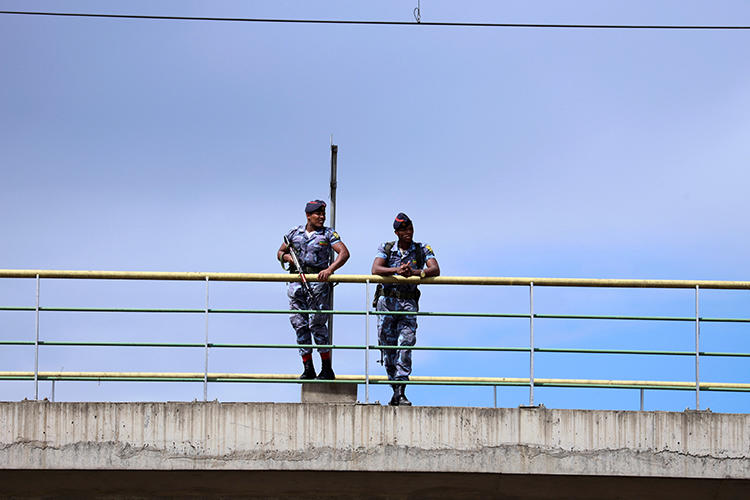Nairobi, May 22, 2020 — Ethiopian police should immediately and unconditionally free journalists Dessu Dulla and Wako Nole and media worker Ismael Abdulrzaq, the Committee to Protect Journalists said today.
On March 7, police in the town of Burayu, on the outskirts of the capital Addis Ababa, arrested Dessu, a deputy director at the privately owned Oromia News Network broadcaster, Wako, who contributes to the network and also reports for the radio broadcaster Sagalee Bilisummaa Oromoo, and Ismael, a driver for the station, according to the network’s chairperson, Buli Edjeta Jobir, and CPJ reporting from the time.
On March 30, a court in Burayu ordered the three employees’ release after prosecutors said they could not make a case against them, according to Buli and their lawyer, Mulisa Ejetaa, both of whom spoke to CPJ in phone calls and via messaging app.
However, as of today, the three remain in detention, in violation of court orders issued in March, April, and May, while police claim to be investigating unspecified allegations against them, according to Mulisa, Buli, and an April 21 court document seen by CPJ.
The Oromia News Network, which operated in exile until 2018, primarily covers politics and is targeted at an Afaan Oromo-speaking audience; Sagalee Bilisummaa Oromoo, which broadcasts some of its programming on the news network, hosts programming that is supportive of the Oromo Liberation Front opposition party and also covers regional news, according to CPJ’s reporting.
“The detention of Dessu Dulla, Wako Nole, and Ismael Abdulrzaq, even after prosecutors said they had no case against them, and in defiance of court orders, is an unacceptable violation of their rights of due process,” CPJ’s sub-Saharan Africa representative, Muthoki Mumo. “They should be released unconditionally, and those responsible for infringing their rights should be held to account.”
The three network employees were arrested alongside two members of the Oromo Liberation Front, Gada Gabbisa and Batire File, shortly after they visited Abdi Regassa, a member of the party’s leadership, who was detained at a Burayu police station, according to Buli, who was also at the station at the time, and CPJ’s reporting from March.
The network employees knew Abdi personally and also intended to file news reports about their visit, according to Buli, who said that Ismael is also a member of the party. Police initially accused the three of illegally photographing the police station, and claimed that Ismael had intentionally involved himself in a minor traffic accident with the intention of killing the officers who arrested them, Buli said.
After the police ignored the Burayu court’s release order on March 30, Mulisa filed a habeas corpus application on April 6, and police were ordered to produce the detainees in court, according to Buli and Mulisa. When they did not do so, a subsequent release order was issued on April 8, Buli said.
Police produced Ismael in court on April 9, but then returned him to custody and, in the weeks since, police have not complied with several subsequent orders to produce the detainees in court and to release them, Buli and Mulisa said.
In the April 21 court document reviewed by CPJ, the court said police did not comply with orders, failed to produce defendants when requested, and did not provide evidence for their case. The court ordered the officers to provide an explanation during an April 23 hearing, but they did not appear in court, Buli said.
On May 13, Burayu police said that Dessu, Wako, and Ismael had been transferred out of their custody, according to Buli and Mulisa. As of May 22, they were being held at a police station in Gelan, a town south of Addis Ababa, according to Buli and another source who is familiar with the case but asked not to be named for safety concerns, both of whom said the police did not disclose a reason for the transfer.
In a phone call last week, Oromia regional government spokesperson Getachew Balcha declined to respond to questions on the case, and referred CPJ to the regional attorney general, Daniel Asefa.
On May 14, Daniel told CPJ via phone that his office was investigating why the journalists were being detained. Today, he said that his office’s inquiry was still ongoing and he could not yet provide comment.
In a text message, Abebe Geresu, the deputy head of Oromia’s Peace and Security bureau, told CPJ that he did not know about these cases.
When Jibril Mohamed, head of the Oromia Peace and Security Bureau, was reached on the phone this afternoon, he said he could provide CPJ with comment in two hours. He did not answer subsequent calls.
